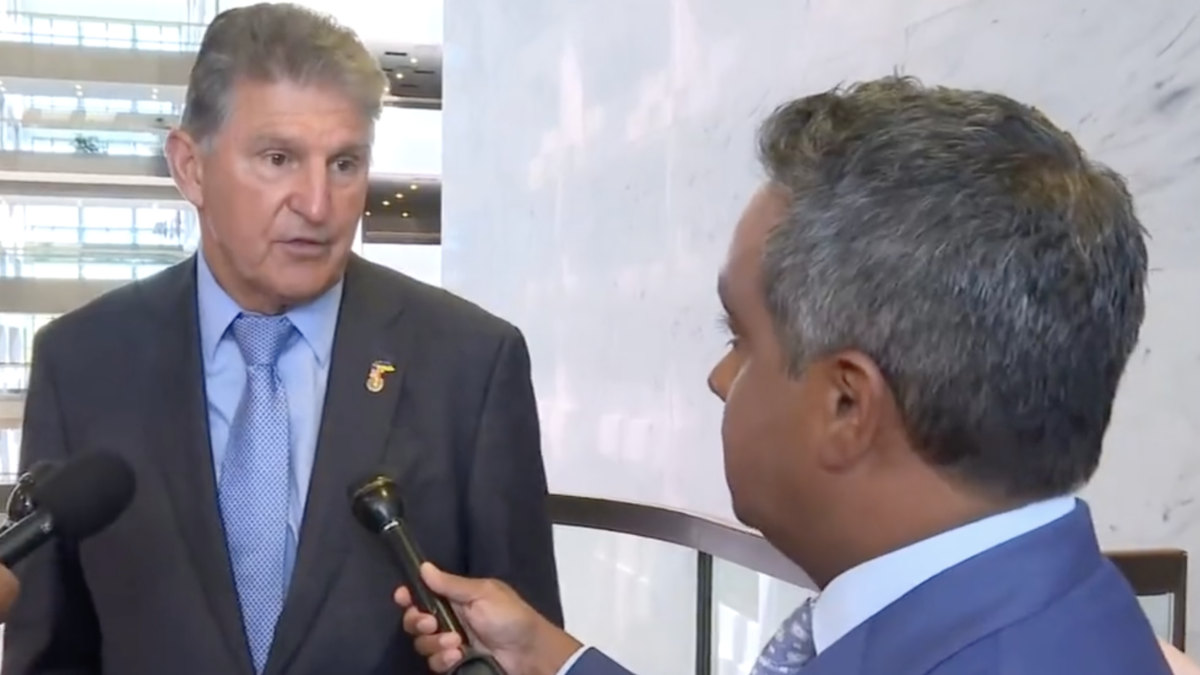Democrat Reps. Alexandria Ocasio-Cortez and Ted Lieu sent a letter to Chuck Schumer Monday requesting “that the Senate make its position clear on whether Justices Kavanaugh and Gorsuch lied under oath during their confirmation hearings.”
The letter is part of the left’s wishcasting efforts to impeach “conservative” justices who uphold the Constitution as written. Though it wouldn’t be surprising if Schumer, who’s launched his own unprecedented attacks on the court, acquiesced to the demands of two backbenchers. They’re both on Twitter, after all.
Nancy Pelosi, Susan Collins, Joe Manchin, and others have also dishonestly claimed that Kavanaugh misled them on Roe, either during his confirmation interview or under oath. “Every single one of them said under oath that they would actually preserve Roe,” Kirsten Gillibrand lied in May. “That is absolutely fraud, and there should be consequences.”
When asked by CNN Monday if he regretted voting for Gorsuch and Kavanaugh, Manchin said, “I regret any time someone that you’re confirming in any public position is not being direct or truthful.”
We’ll get to the “truthful” part of Manchin’s contention in a moment, but how can a nominee be “direct” about cases that do not exist? It’s a preposterous demand, indicative of how unserious Democrats are about the Supreme Court’s role.
“We all ask the questions,” Manchin went on, “and you all heard it in their hearings. So, yeah, it’s very disappointing.” What did we hear during the hearings? When asked about Roe, Gorsuch noted that “a good judge will consider it as precedent of the U.S. Supreme Court worthy as treatment of precedent like any other.” When Kavanaugh was asked what he meant by Roe being “settled law,” he answered that the case was “entitled the respect under principles of stare decisis.”
Conceding that long-established precedents should be treated with more weight does not preclude the possibility that those decisions were wrongly decided in the first place and should be overturned. This has been the position of every Supreme Court nominee in modern history. As Schumer pointed out at the time, and as everyone understood, it is “not as simple as Judge Kavanaugh saying that Roe is settled law. Everything the Supreme Court decides is settled law until it unsettles it. Saying a case is settled law is not the same thing as saying a case was correctly decided.”
Collins also claims she was misled, but her own words betray that contention. In a speech announcing a yes vote, Collins said that “someone who believes that the importance of precedent has been rooted in the Constitution would follow long-established precedent except in those rare circumstances where a decision is ‘grievously wrong’ or ‘deeply inconsistent with the law.’ Those are Judge Kavanaugh’s phrases.”
Indeed, they are.
The Dobbs majority, which Kavanaugh joined, argues that, “[L]ike the infamous decision in Plessy v. Ferguson, Roe was also egregiously wrong and on a collision course with the Constitution from the day it was decided” and that “Roe was egregiously wrong from the start. Its reasoning was exceptionally weak, and the decision has had damaging consequences” (emphasis mine). So, clearly, and correctly, Kavanaugh believes the court’s decision to extricate abortion from the democratic process and dictate its legality in 1973 was “egregiously” – one suspects that Collins confused the word “grievous” with “egregious,” though both convey the same idea – decided, and in conflict with the law.
In his concurrence, Kavanaugh also notes that precedent like Roe should be only overruled when “the prior decision is not just wrong, but is egregiously wrong.” He goes on to say that stare decisis requires respect for the “accumulated wisdom of the judges who have previously addressed the same issue,” but it is “not absolute, and indeed cannot be absolute.” Every current member of the SCOTUS has overruled precedent, he points out, and every one of the 48 justices appointed in the past 100 years has overruled precedent, and “a substantial number of very significant and longstanding precedents.”
Collins also says that Kavanaugh “agreed with what Justice Roberts said at his nomination hearing in which he said that it was settled law.” What did Roberts say? When asked what he meant by “settled law” re Roe, the future justice explained that it was “settled as a precedent of the court,” not as the law in perpetuity. Nowhere in his testimony does he say it could not be overturned. In fact, he avoids answering that specific question on numerous occasions.
Democrats seem to be under the impression that extraconstitutional decisions that prop up their political objectives become magically impregnable to argument: a deference they do not give the actual Constitution. You might recall Democrats pressing Amy Coney Barrett to answer whether Roe was “super precedent.” That was nothing compared to liberal Republican Sen. Arlen Specter, then chairman of the Judiciary Committee, who asked Roberts during his confirmation hearing whether he agreed that Roe had become “super-duper” precedent. The future chief justice answered that Roe was “like any other precedent of the court,” and was immediately put under “double-secret probation” by the Senate.
But that is exactly the point Kavanaugh made, as well. And Gorsuch. And Coney Barrett. And Alito. And Kagan. And Sotomayor. In 2009, the then-Supreme Court nominee told then-Colorado Sen. Mark Udall that Heller, the ruling codifying gun ownership as an individual right, would “guide her decisions in future cases.” Of course, within a year of becoming a justice, Sotomayor was targeting Heller. If Democrats had their counter-constitutional majority, does anyone believe they would care about the precedents in Heller, Citizens United, Janus, or Dobbs, for that matter?
What’s certain, however, is that not once has an originalist nominee promised that precedent can’t be overturned. If they did, they’d be unfit for the Supreme Court.









